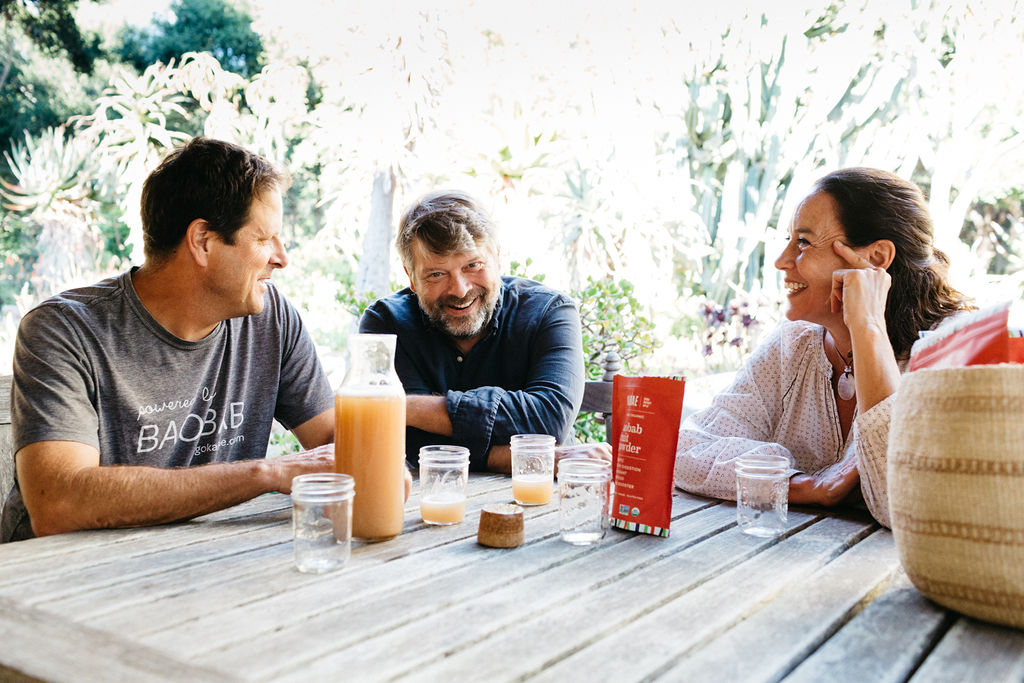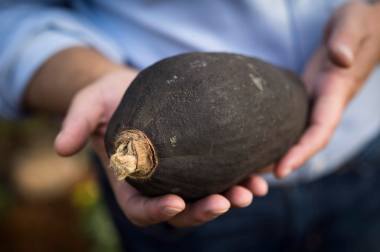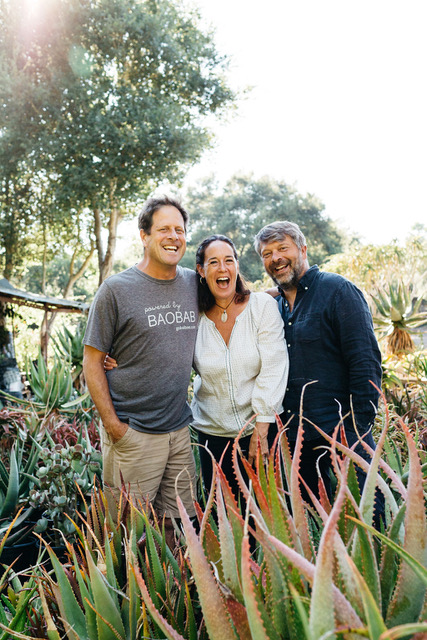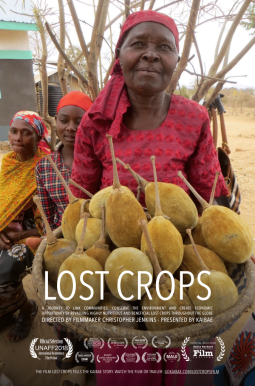Santa Barbara Business Creates a Positive Social and Environmental Impact Through Health and Beauty Products
KAIBAE, a k a the 'Lost Crops Company' Is Inspired by Ghana’s Baobab Tree

Inspired by the benefits of the baobab tree, Santa Barbara–based wellness company KAIBAE is putting people and the planet before profits and redefining what it means to be successful in business.
Central to the production of KAIBAE’s line of health and beauty products, as well as their baobab fruit powder — which is used in various products for companies such as Nature’s Path Organic, Republic of Tea, and Patagonia Provisions — is the use of regenerative practices, preservation of biodiversity, and recognition that sustainability is not enough.

KAIBAE, which became a certified B Corp in 2022, was initially inspired by botanist-humanitarian Thomas Cole’s interest in the baobab tree. He formed the company with Barbara Maes and Dr. Luc Maes, and they have since partnered with communities in northern Ghana who have cherished the baobab for centuries. When KAIBAE was first started in 2014 (see story here), there had never been a commercial harvest of baobab. Having very few opportunities for economic development, northern Ghana’s harvesting of the baobab tree is a critical new source of revenue that improves the community’s access to education and healthcare and prevents food insecurity.
“We identify wild crops throughout Africa,” said Dr. Luc Maes. Dr. Maes, whose background is in naturopathic medicine, said that KAIBAE is “inspired by the baobab, where we can make a difference not only for people’s health, but also preserve biodiversity.”
Barbara Maes said KAIBAE has connected with many incredible people, is coming out with new products, and has interesting collaborations in the pipeline.

“Baobab is getting a lot of attention as an ancient ingredient, and is now becoming increasingly mainstream,” said Barbara Maes, an art historian and curator who is responsible for new business and day-to-day operations for KAIBAE. “It’s exciting to see that the demand is increasing and people are appreciating its benefits.”
The KAIBAE baobab harvest in Ghana is now the number-one annual source of income for more than a hundred community workers going into education and health fields.
KAIBAE has two branches of business: retail products and the wholesale selling of ingredients for additional products. The retail branch of KAIBAE is where products are produced that support the gut and skin microbiome.
“The skin microbiome is an important part of our health that we are losing,” said Dr. Maes. “It’s contributing to a number of health concerns and as a doctor, diabetes, obesity, metabolic syndrome, or cardiovascular disease are all conditions that I’ve seen throughout the years.”
The retail side of KAIBAE is focused on sourcing ingredients around combining ingredients that benefit the skin microbiome, added Dr. Maes. KAIBAE is concerned about what ingredients are used in their products, whether they are their products or other people’s.
“We’re all about preserving wild plants,” said Dr. Maes. “If we don’t preserve them, we’re going to have an even more rapid destruction of our biodiversity.”

The other branch of KAIBAE sells ingredients for food, as well as raw ingredients, the raw material, the fruit, powdered oil, and the leaves to the food, beverage, and the cosmetic industries. By doing this, KAIBAE can continue to support the communities and promote economic development that they have committed to with the local communities.
The dream for KAIBAE is for the business to become an example for how we need to be making and using products on a daily basis. “I feel like we’re creating an opportunity where consumers can become active participants and are not only maintaining their health, but also their environmental health,” said Dr. Maes.
Even though it has been a steep learning curve, the KAIBAE founders say they want to be a part of their own community, the bigger community, and just do good work. From harvesting ingredients in the wild to developing a solid supply chain, they agree that they have learned a lot.
“We’re not slowing down,” said Barbara Maes. “Let’s just say that this team is full speed ahead.”
See gokaibae.com for more information about KAIBAE.




You must be logged in to post a comment.